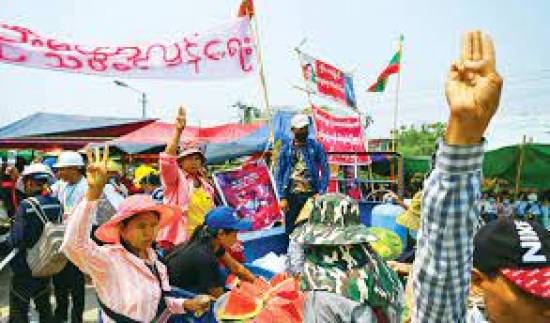Myanmar's military coup has crippled the country's economy, leaving people "trapped in a cycle of poverty, displacement, rights violations, and abuses," the UN rights chief said on Tuesday.
Michelle Bachelet made the remarks while giving an update on Myanmar to the 50th meeting of the Geneva-based Human Rights Council, which is in session till July 8.
"The military coup has crippled Myanmar’s economy, with millions losing their jobs or sources of income in the last year. The value of the national currency has plummeted, and prices of essential goods have surged," she said.
"What we are witnessing today is the systematic and widespread use of tactics against civilians, in respect of which there are reasonable grounds to believe the commission of crimes against humanity and war crimes."
Since February 2021 when the military took power, she said, at least 1,900 people have been killed, 1 million have been registered by the UN as internally displaced, while some 14 million remain in urgent need of humanitarian assistance.
Bachelet said internet shutdowns, and the harassment and prosecution of journalists and individuals reporting on human rights have "severely limited information flows and civic space."
The UN high commissioner, who is not seeking a second term after her four-year term expires in August, said ASEAN's five-point plan to handle the political crisis "seems to have produced limited results" since its adoption in April 2021.
"I urge ASEAN and its members to continue engaging with all relevant national stakeholders, including representatives of the National Unity Government and of civil society," Bachelet said.
She called call for "sustained" and "concrete" action by all parties to stem the violence.
"The targeting of civilians and the burning of villages must stop now. The protection of civilians is an absolute imperative, and access must be granted for vital humanitarian assistance to reach all communities," she said.
"Any solution to this crisis has to be built on broad-based consultation with all stakeholders in the democratic movement and with ethnic minority groups. A climate in which productive political discussions can take place to advance this priority is urgently required."/aa


